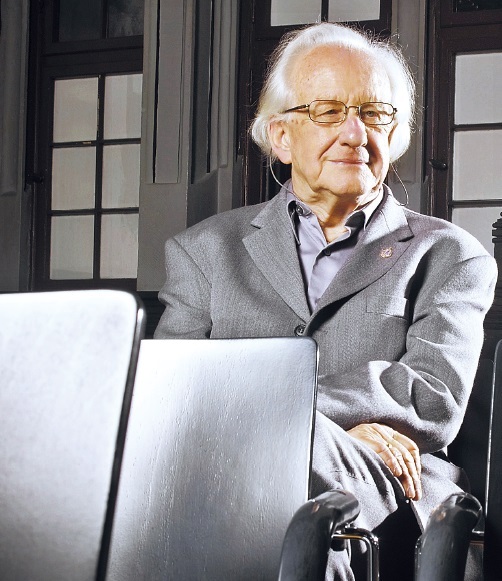[JEJU FORUM] Norwegian scholar criticizes no ‘exit strategy’ on N.K.
By Shin Hyon-heePublished : May 23, 2016 - 19:28
Despite Pyongyang’s unabated nuclear ambitions, Seoul should seek to craft an “exit strategy” to defuse cross-border tension away from the current focus on sanctions and pressure, said Johan Galtung, founder of the Peace Research Institute Oslo.
Galtung, who also founded conflict mediation organization Transcend International, noted that the South Korean Park Geun-hye government, with its hard-line stance against the North, should now take a different approach.
“I think it is more Washington’s rather than Seoul’s policy, hence no exit strategy,” the prominent scholar said.
Galtung, who also founded conflict mediation organization Transcend International, noted that the South Korean Park Geun-hye government, with its hard-line stance against the North, should now take a different approach.
“I think it is more Washington’s rather than Seoul’s policy, hence no exit strategy,” the prominent scholar said.

Galtung will be attending the 11th Jeju Forum for Peace and Prosperity from May 25-27 at the International Convention Center Jeju in Jungmun, Seogwuipo City, Jejudo Island.
During the three-day forum, Galtung is scheduled to have a discussion with Joongang Ilbo editor at large Kim Young-hie on the tension in Northeast Asia and ways to foster peace.
“The U.S. policy from 1953 on has been to hope for and stimulate a DPRK (North Korea) collapse, hugely underestimating their strength. DPRK has demanded a peace treaty, normal relations, and a nuclear free Korean Peninsula, and has run out of patience.”
The 76-year-old sociologist, mathematician and political scientist rose to fame for establishing peace studies as a field of academia in the 1970s. He has expanded the concept of peace through the distinction between “negative peace” and “positive peace,” with the first referring to the absence of violence, and the latter encompassing positive signs such as a recovery of relationships and a more enduring resolution of conflicts.
On the Korean reunification, Galtung has suggested a confederation of the two states as a first step, followed by a federation and eventually complete incorporation as a neutral power. Despite the evolving security landscape surrounding the peninsula, he said he still believes in the idea.
“I stand by unifying the nation with open borders and equitable cooperation, for the latter DPRK has to develop more, as they will,” he said.
“I stand by first confederation of the two states, then federation, then possibly one state in the future, not based on any collapse -- not a good base as we can see from Germany. And I stand by neutrality for a peninsula in the intense power field of four major powers.”
The scholar also expressed concerns over unprecedented calls that South Korea should build its own nuclear weapons, triggered by North Korea’s fourth underground explosion, saying they would only “contribute further to the tension and polarization.”









![[Hello India] Hyundai Motor vows to boost 'clean mobility' in India](http://res.heraldm.com/phpwas/restmb_idxmake.php?idx=644&simg=/content/image/2024/04/25/20240425050672_0.jpg&u=)









